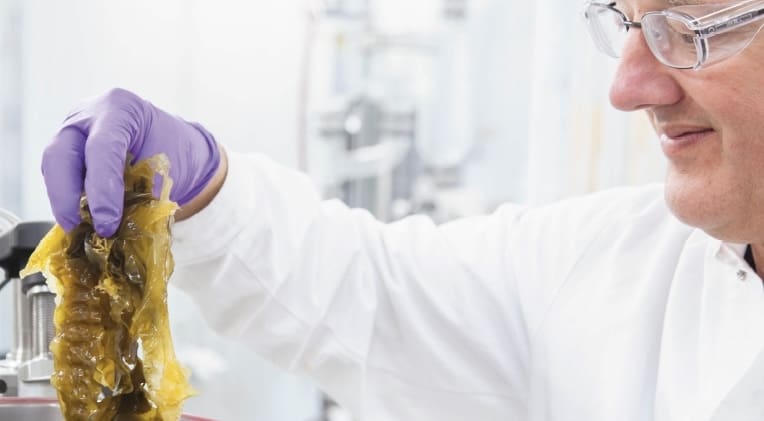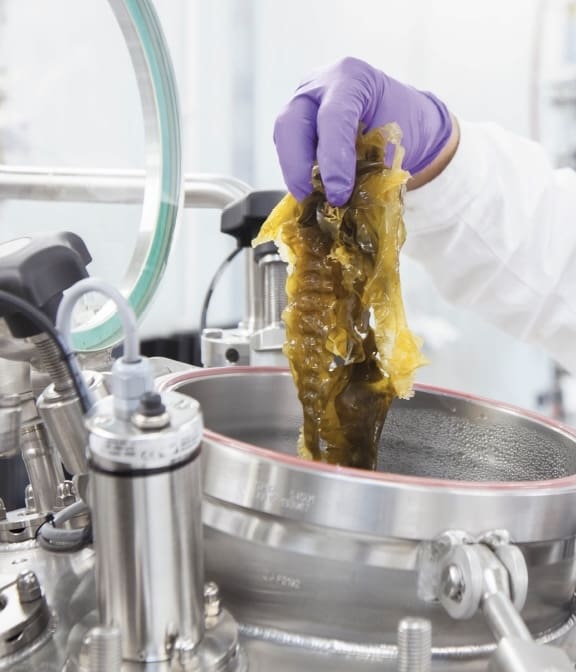With a laboratory especially for processing seaweed, ECN / TNO has expanded its capacity to research technologies that convert biomass into sustainable biofuels and renewable raw materials. The lab, located in Petten, the Netherlands, will be used to explore seaweed’s great potential as a renewable energy source.
With a daily processing capacity of 50 kilos of wet seaweed, the lab is the largest of its kind worldwide. It boasts flexibly deployable test facilities for the development of methods to turn seaweed into biofuel and biobased materials. In the lab, the seaweed is divided into sugars, proteins and minerals for processing into semifinished products. The lab can produce basic materials for fuels, bioplastics, textiles, sweeteners, antioxidants and minerals.
Sustainable energy
For TNO (Netherlands Organisation for Applied Scientific Research), which is part of the triple helix of commercial research organizations, enterprise and knowledge institutions, using this new laboratory is a big step towards helping the chemical sector become more sustainable and transition to more sustainable energy sources. ECN (Energy Research Centre of the Netherlands; part of TNO) has been working with NIOZ (Royal Netherlands Institute for Sea Research) and Wageningen University and Research Center on the ‘Plant Biomass from the Sea’ project. The Dutch Province of Noord-Holland commissioned this project and supported it with a €300,000 subsidy.
Petajoules of energy
Calculations have shown that largescale seaweed production in 8 – 9% of the Dutch part of the North Sea (approx. 5,000 km2) could produce 350 PJth (petajoules) in energy, or about 10% of the total energy consumption in the Netherlands.


